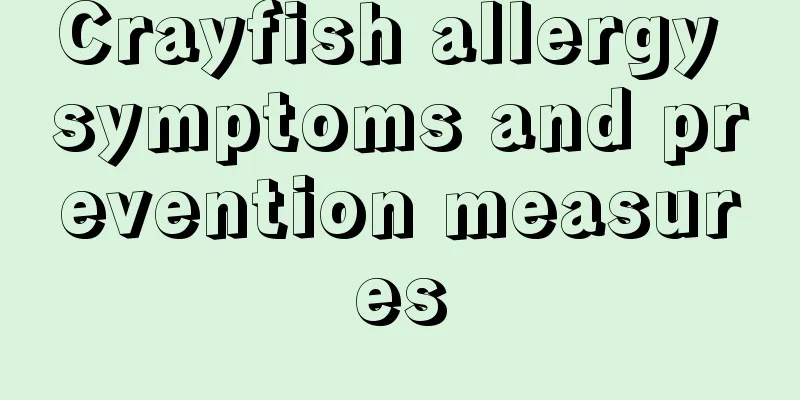The difference between hiccups and belching

|
Many people have experienced hiccups in life. This is caused by gastrointestinal dysfunction. Many people eat too fast and swallow a lot of air, which makes this phenomenon easy to occur. Hiccups is a common name, and its scientific name is belching. Although belching and hiccups are both caused by gastrointestinal reasons, belching and hiccups are different and have many differences. The difference between hiccups and belching Belching, commonly known as "burping" or "full belching", is one of the common symptoms of various digestive tract diseases. Belching is the sound made by gas in the stomach rising up the throat. The sound is long and slow, and was called "hiccups" in ancient times. It is also a manifestation of stomach qi disharmony and upward reflux. Different from hiccups, which are short, sharp, and audible. Occasionally, belching may occur after a full meal, but without other accompanying symptoms. It is not pathological and can usually heal on its own. Clinically, the difference in belching sound and odor is used to differentiate the deficiency or excess of the syndrome. Belching with sour and foul smell and abdominal distension is mostly due to stagnation of food, which is a positive syndrome. If the belching is frequent and loud, the abdominal distension decreases after the belching, and the belching attacks increase or decrease due to changes in emotions, it is mostly due to liver qi invading the stomach, which is a positive syndrome. Belching that is deep and intermittent, without a sour or rancid odor, and is accompanied by poor appetite, is mostly caused by stomach deficiency and qi reflux, which is common in the elderly or people with long-term illness and physical weakness, and is a deficiency syndrome. Frequent belching without sour or rotten smell and accompanied by abdominal pain are mostly caused by cold evil invading the stomach, which is a cold syndrome. Especially reflux esophagitis, chronic gastritis, peptic ulcer and functional dyspepsia are often accompanied by belching symptoms. Causes of belching 1. Gastroesophageal reflux disease (GERD) Bile reflux gastritis, eating too much, the stomach cannot be emptied on time, food accumulates in the stomach for too long, causing belching. Some GERD patients do not have common typical symptoms such as heartburn and reflux, but may have atypical symptoms such as belching, chest pain, upper abdominal pain, and upper abdominal burning sensation. 2. Mental stress Depression can also affect the sympathetic nerves, making them overly tense, inhibiting the gastric motility and emptying function, causing stored food to remain in the stomach for too long, leading to the production of fermented gas. 3. Bad diet and lifestyle habits Eating too much radish, potato, sweet potato, chestnut and other foods, or staying in bed for a long time, working at a desk for a long time, and lack of physical activity can also affect gastric emptying. 4. Gastric outlet obstruction Belching is a common complication of duodenal ulcer, also accompanied by upper abdominal distension and discomfort, anorexia, nausea and vomiting. 5. Hiatal hernia Belching often occurs after eating and is often accompanied by heartburn, acid regurgitation, and abdominal bloating. Patients often complain of dull pain under the sternum or in the precordial area, which may also radiate to the shoulder. Other symptoms include difficulty swallowing, nausea, weight loss, difficulty breathing, shortness of breath, coughing, and bad breath. 6. Peptic ulcer It is a common disease that often causes belching. The basic symptoms are heartburn and burning stomach pain. Duodenal ulcers cause pain on an empty stomach and in the middle of the night, which can be relieved after eating or taking antacids or drugs to reduce secretions. Gastric ulcer causes pain half an hour after a meal and is relieved before the next meal. Accompanying symptoms and signs include difficulty swallowing, nausea, vomiting, black stools, abdominal distension, feeling of fullness, and upper abdominal tenderness. |
<<: Finger joint pain at night
>>: How to recover from swollen knuckles
Recommend
What are the causes of spasmodic torticollis
Spasmodic torticollis is a common disease that ma...
Steps to shrink pores by washing your face with salt
Nowadays, many women pay great attention to their...
How to make shaved ice at home
Shaved ice is a very suitable drink for summer an...
What are the common sense about gallbladder cancer prevention
Our daily living conditions are related to our he...
Can stomach cancer cause ulcers?
Can gastric cancer cause ulcers? Gastric ulcers a...
The harm caused by bile duct cancer is somewhat
Cancer has taken away countless lives and broken ...
What are the diets for prostate cancer patients?
I believe everyone should be familiar with prosta...
What issues should people with scar physique pay attention to
Scars have always been regarded as unclean things...
Why is there swelling on one side of my neck?
For friends who have swelling on one side of thei...
Is color blindness hereditary? What are the types?
Color blindness is a disease. Patients cannot dis...
What are the side effects of drug abuse?
Drug abuse is something that is strictly prohibit...
What risk factors lead to the occurrence of colorectal cancer?
What risk factors lead to colorectal cancer? Colo...
Can mangoes be stored in the refrigerator? How should mangoes be stored?
Eating more fruits is good for your health, and m...
Why am I thirsty even though my blood sugar is not high?
If you feel thirsty when your blood sugar level i...
Matters needing attention in the care of patients with hamartoma
Disease is terrifying. We seem too small and some...









